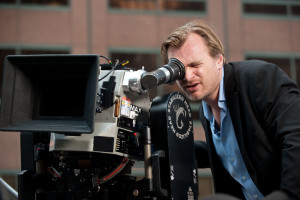 On the face of it, writing and directing a feature film are two very different jobs. The clichés are of the introverted writer squirrelling themselves away in a quiet room while the loud, bombastic director strides confidently on set and orders hundreds of people around.
On the face of it, writing and directing a feature film are two very different jobs. The clichés are of the introverted writer squirrelling themselves away in a quiet room while the loud, bombastic director strides confidently on set and orders hundreds of people around.
However, when you look a little closer you see that there is plenty of overlap. Both involve the creation of worlds and characters, both require creative imagination to craft stories and both require communicating your vision to the team around you.
Hollywood is awash with writer-directors, including Peter Jackson, Christopher Nolan, James Cameron, Wes Anderson, Joss Whedon and Alfonso Cuarón to name just half a dozen. But how often is the director of a film also one of the writers? I used two datasets to take a look – the top 100 US grossing films of each of the past 21 years (2,100 films in total) and films shot in the UK between Jan 2008 and July 2014 (2,454 films).
In summary…
- Between 1994 and 2014, 32% of top US grossing films featured a writer-director
- Writer-directors are becoming more common in top grossing US films
- 58% of UK films shot in 2008-2014 were made by writer-directors
- Over two-thirds of UK micro-budget films were written by the director
- But under a quarter of UK films budgeted over £30 million feature a writer-director
- Writer-directors are very common among the very worst and very best films
- Sci-fi is the genre with the highest percentage of writer-directors (69%)
- Music-based films and musicals have the lowest (39% and 33% respectively)
Writer-directors on the rise
Over the past two decades, 32% of top US grossing films have been written (completely or in part) by the director.
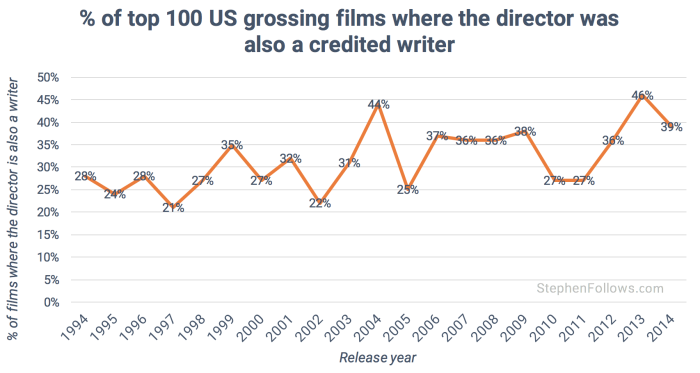
Writer-directors are becoming more prevalent, as you can see if you look at the three year averages between 1994-96 of 27% and 2012-14 of 40%.
What about UK writer-directors?
As well as looking at the top US grossing films, I also studied UK films. The datasets are different, as the US data is only of the top 100 films of each year whereas the UK data looks at all films made. As shown below, 58% of UK films shot in 2008-2014 were made by writer-directors.
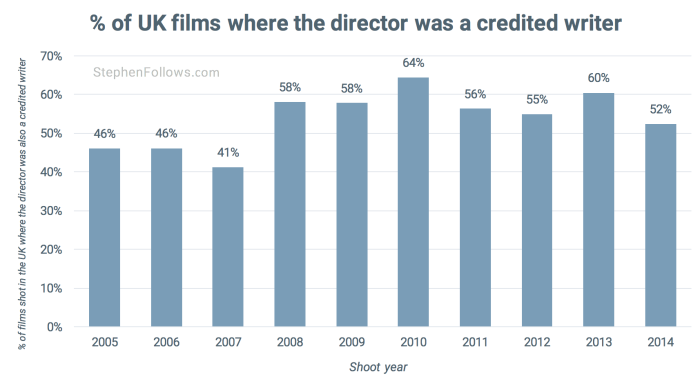
The dataset of UK films comes from the BFI who between 2005-07 tracked all films shot in the UK budgeted over £500,000. From 2008 onwards they tracked films of all budget ranges. This, combined with my findings below on budgets, explains the leap between 2007 and 2008.
Does the size of the film affect the number of writer-directors?
Yes, dramatically so. I am using my dataset of UK films as the budget ranges come from HMRC via the BFI, so we can be sure they’re correct (or, at least as declared to the tax man!)
As you can see below, as the films grow in scale, the percentage of directors who are also writers dwindles. Over two-thirds of UK micro-budget films were written, at least in part, by the director, compared with under a quarter of UK films budgeted over £30 million.
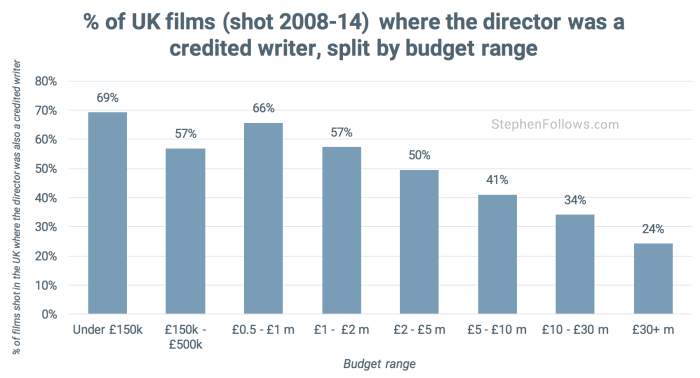
Hollywood budget data is too patchy and subject to spin to be able to perform this accurately for US films.
Are films by writer-directors better?
There no way of scientifically knowing ‘how good’ a film is but we can use proxies to look at how well the films have been received. Once such proxy is the score given by IMDb users, out of ten.
Using this metric, we can see that writer-directors are very common among the very worst, and very best films.
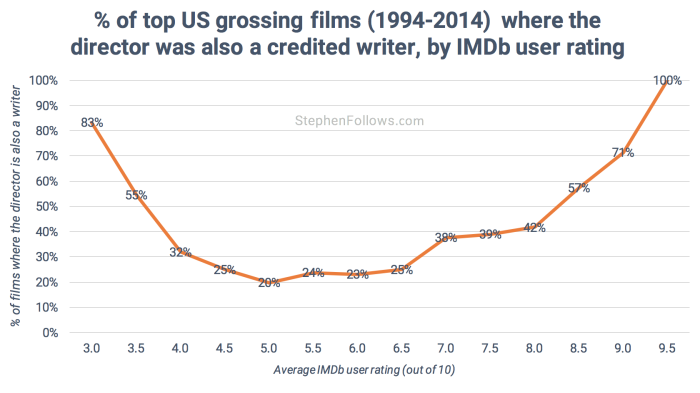
At both ends of the spectrum, a small number of writer-directors are having a big effect. On the low end this includes Tyler Perry, Jason Friedberg and Aaron Seltzer and among the ‘best’ films there’s Peter Jackson, Christopher Nolan and Quentin Tarantino.
Which genres have the highest percentage of writer-directors?
For UK films, sci-fi is the genre with the highest percentage of writer-directors (69%), with music-based films and musicals having the lowest (39% and 33% respectively).
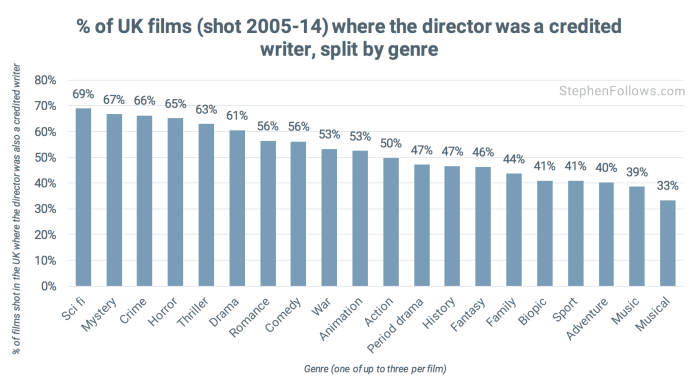
Are male and female writer-directors equally common?
Once I had decided to study this topic I asked my Facebook group what percentage of directors they thought were also writer-directors. Answers ranged from 15% right up to 67%, although what was more interesting was the number of people who asked whether the situation was different for male and female writer-directors.
My initial reaction was that we’re not likely to get much of a useful answer as there are so few female directors to start with. Nonetheless, I agreed to take a look.
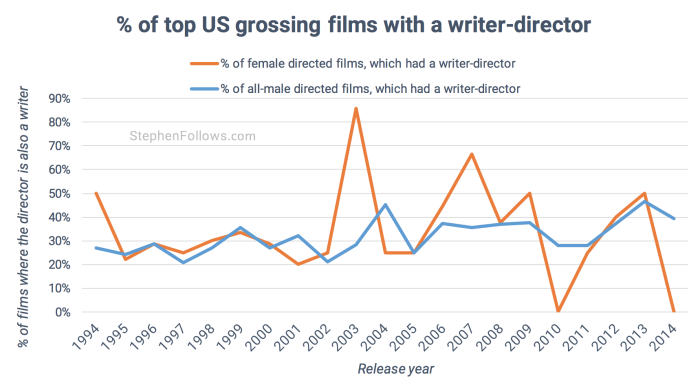
As you can above, the percentage of female directors who are also writers on their films jumps around quite a bit. However, this is not due to big shifts in the hiring of writer-directors, but more a consequence of the scarcity of top-level female directors. For example, in 2003 seven of the top 100 US grossing films had at least one female director, and six of those had a writer-director. However, just seven years later, none of the three top-100 films (which were directed by at least one woman) had a writer-director attached. With numbers this small, we have to expect huge jumps in the results and therefore there isn’t enough data to be conclusive.
If pushed, I’d say that although female directors are massively under-represented, there doesn’t seem to be much of a difference in the percentage of male and female directors who also write their films.
Data
The Hollywood films studied today were the top 100 grossing films at the US box office between 1995 and 2014, as defined by IMDb. The genres of the Hollywood films are also from IMDb.
The list of UK films comes from the BFI, and represents all films of all budget ranges shot in the UK between Jan 2008 and July 2014, plus all films shot in the UK budgeted over £500k shot between Jan 2005 and Dec 2007 (prior to 2008 the BFI did not track smaller films). The genres for the UK films come via the BFI.
For films with more than one director, when I refer to “the director” being a credited writer I mean at least one of the directors is a credited writer. Only 9.1% of my UK films had more than one director, and 7.7% of my US films.
Epilogue
Arguably, the job of writer-director should be seen not as the conflation of two jobs but as a whole different role in its own right. When reading scripts I think it’s fairly easy to spot if the writer also wants to direct, with their extra descriptions, inner thoughts and (*gasp*) camera directions.
Today’s topic is one of the reasons I enjoy researching and writing this blog. Until last week I hadn’t ever wondered what percentage of directors are also writers, but once the thought had popped into my head (and after a bit of number-crunching) I was able to get an answer.


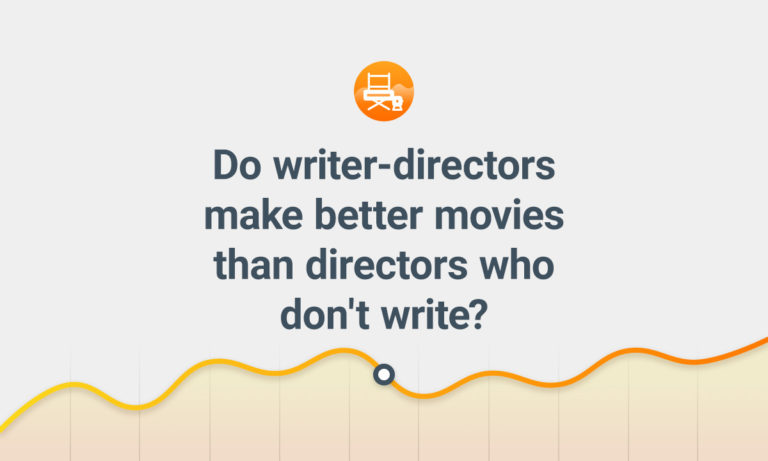
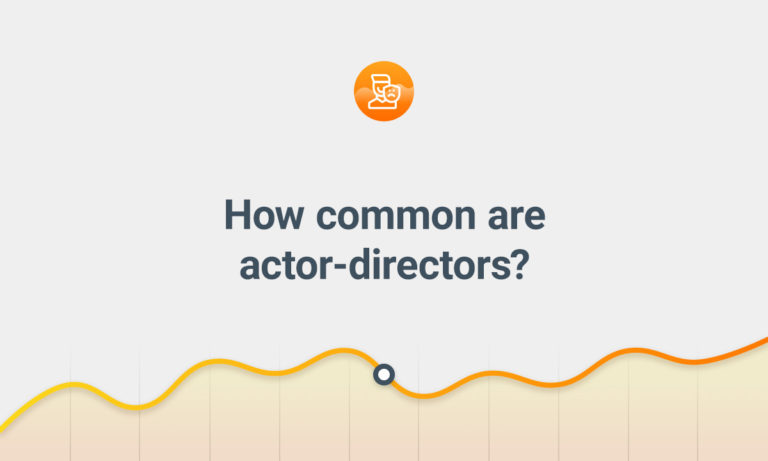

Comments
Love your research Stephen and this one is particularly interesting and relevant. Pretty telling methinks. My take-away is that when you have a serious passion (and some film making skill) you want your hand on the tiller all the way – for better or worse.
Thanks heaps. Lx
Very interesting. I had never wondered about this until I read the title of this article.
I guess the phrase “film is a director medium” certifies that there are a lot of writer directors right now. But as you mention, that does not guaranty “success”.
At the same time, not everybody can write and direct at there same time. The greatest director of all time -in my opinion-, Mr. Spielberg, does not write, but he can get that script (and with creative meetings with the writer) make an amazing movie.
Very interesting read, thanks.
I am also interested in the percentages actor-director. Do you happen to have data on this as well?
Hi Mike
Great question. From what I remember, I chose not to look at that topic because it’s hard to work out what types of actor credits should be studied.
For example, when I look at writers, everyone with a writers credit is of interest. However, when it comes to actors you could be an extra, have a tiny cameo, etc and still be credited as an actor. So we would need to create a rating system which revealed which actors were significant enough to be counted.
That’s hard en mass as you can’t always assume that the top-billed actors are the most significant. Sometimes there’s in order of appearance or alphabetical.
So we either count all actors, but then swamp the results with directors who popped up in one scene, or we have to watch all the films and measure screentime, plot significance, etc.
Not impossible but too much for a blog article!
Thanks Stephen!
If all roles (small to significant) are taken into consideration, do you think the percentage will be higher than 30%?
I’m afraid I don’t know. It would be a lot of work to add actors to the analysis and, as I said, I’m not sure of its value so I’m not too keen to do it! Sorry :/
I’m wondering wether someone who is a writer-director gets paid more that someone who is just a writer or just a director. Is the salary at all affected based on how much someone contributes to the film.
PS: Thank you so much for this article, very interesting read!
In theory, their work will be split in the budget, across writing and directing. In practice, it’s impossible to know if this means they’re getting more or less than a separate writer and director would have.
An old post, but a welcome one. I am working on my first screenplay and would love to also be creative director if it ends up getting made. I’ve found that when the director also wrote the piece, they have more of a concrete idea of exactly how it should be written. Thanks for the vote of confidence, Mr. Follows!
Very interesting! I would also like to know the percentage of writer-director-producers.
Hi Ece. The answer can be found here https://stephenfollows.com/which-film-jobs-have-the-greatest-overlap/
Thanks a lot for this research! I kinda wanted to know if there are any percentage of filmmakers out there who make movies as well as write books and publish it. In simple words, can a director also be an author?